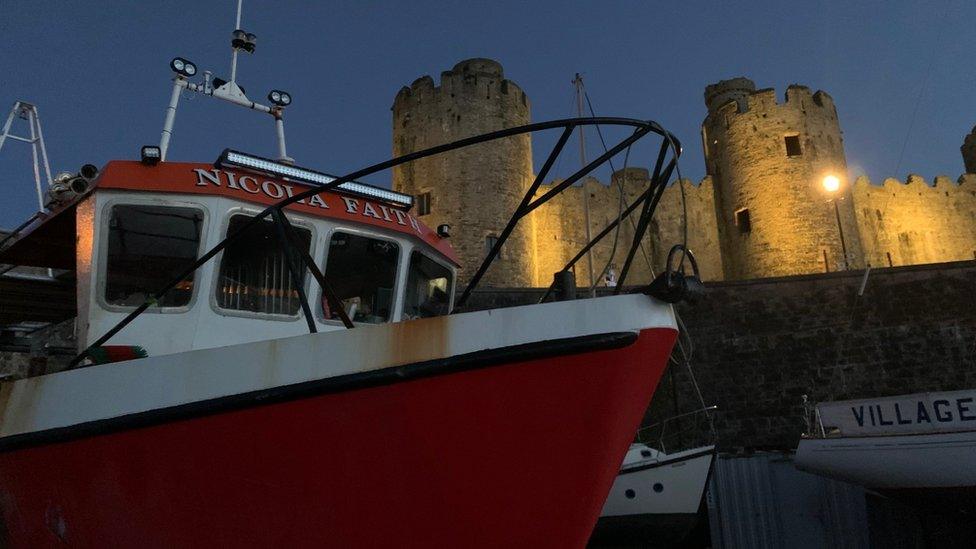Nicola Faith: Fatal sinking inevitable, investigator says
- Published
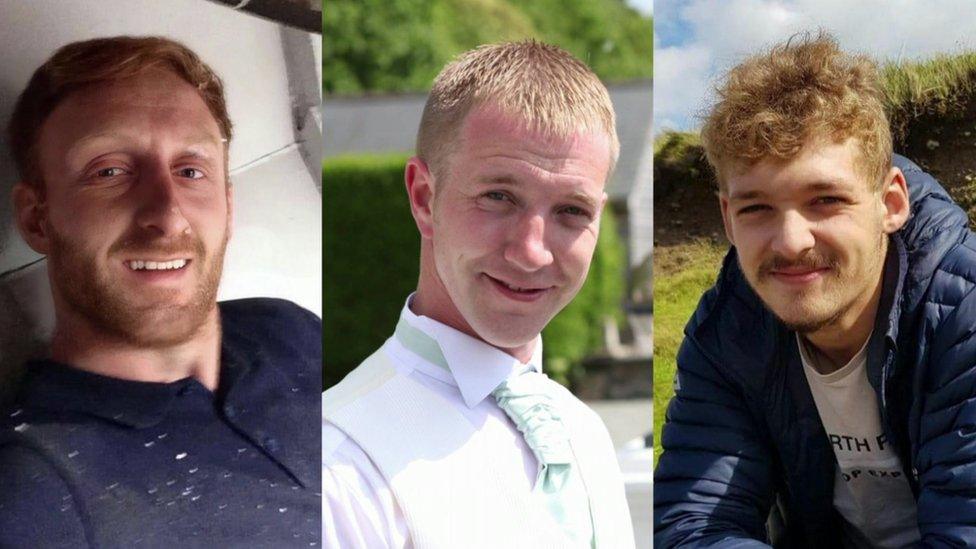
Carl McGrath, Ross Ballantine and Alan Minard died after their fishing boat, the Nicola Faith, sank
Three fishing crew died off north Wales because their boat was unstable and heavily loaded, a report has found.
Jae Jones from the Marine Accident Investigation Branch (MAIB) said a capsize was "almost inevitable".
Ross Ballantine, 39, Alan Minard, 20, and skipper Carl McGrath, 34, all died when their boat, the Nicola Faith, sank off the Conwy coast on 27 January 2021.
Investigators believe the boat sank too quickly for them to raise the alarm and the men were not wearing lifejackets.
"A huge volume of catch onboard and retrieved pots... was equivalent to four family cars or two Range Rovers on the deck," Mr Jones told BBC Radio Wales.
"Bearing in mind this boat is only 10m (30ft) long... the capsize was almost inevitably going to happen."
The Marine Accident Investigation Branch (MAIB) report, external found a number of issues.
It reported the boat was regularly "operated in an unsafe manner", with the priority on carrying a large whelk catch, rather than on making sure it was stable at sea.
Extensive modifications had also been made to the Nicola Faith, which made it more likely to capsize.
Investigators raised the boat from the seabed and carried out extensive tests to see how stable it would have been on the evening it sank.
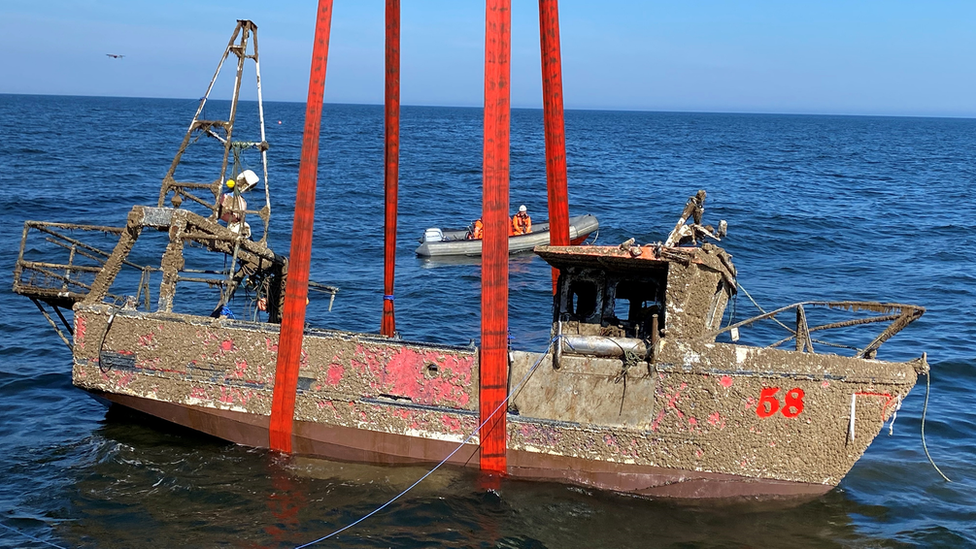
The Nicola Faith had been modified but these were not approved, according to the report
It emerged the Nicola Faith had nearly capsized twice before while heavily loaded.
But even though the skipper had been on "stability awareness training, he prioritised the benefits of heavily loading the boat over the risk of capsize", investigators said.
The report also concluded "the crew's chance of survival was reduced by the vessel not being fitted with an Emergency Position Indicating Radio Beacon (EPIRB)".
Andrew Moll, MAIB chief inspector, said: "Nicola Faith had been modified, and the modification had not been approved.
"Nonetheless, the vessel could have been operated safely with care.
"On the day of the accident, the crew were relocating their pots to a new area and were carrying a full day's catch as well.
"The combined weight of the catch and fishing gear piled on deck was far more than the boat was designed to carry; it capsized, and all three crew were lost in that accident."

Whelk pots from the boat were recovered from the seabed
On the day of the accident, the boat had left its home port of Conwy at about 10:00 GMT, and was due back late evening to unload its catch of whelks.
Investigators retrieved the Nicola Faith's inshore vessel monitoring system, which records its location, and which enabled them to conclude that it sank around 18:00.
A local shellfish buyer texted the skipper later that evening to ask how large the catch would be, and when it was due to be landed, but received no reply.
But it was the next morning before the crew were reported missing, sparking a large air and sea search, but nothing was found.
The men's bodies washed up on the shore of north-west England six weeks later, and it was late May 2021 before the wreck of the Nicola Faith was located.
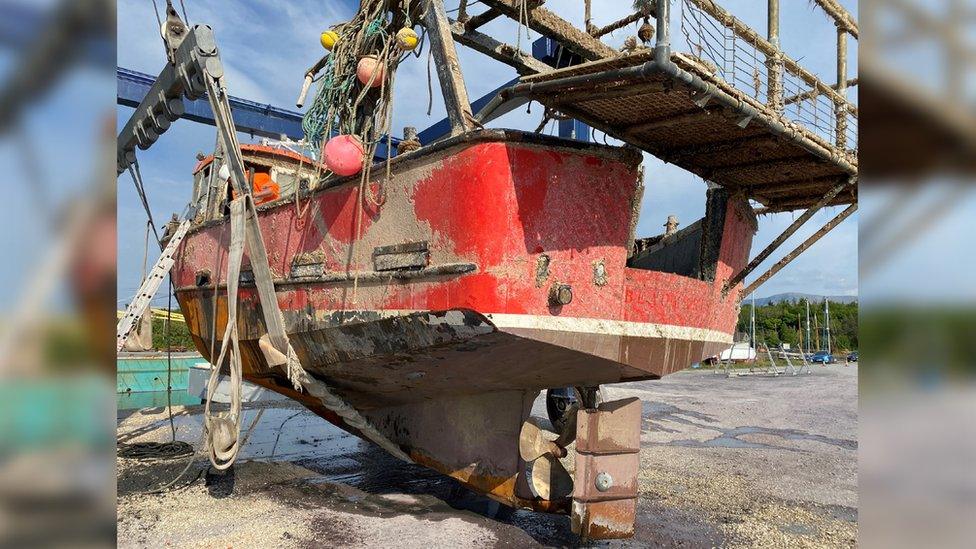
The chief inspector says fishermen should avoid the temptation to overload boats due to fuel price pressures
"There are important lessons about stability from this accident that must be understood and acted upon by all small fishing boat operators," Mr Moll added.
"The first lesson is that modifications, unless properly planned, can significantly erode a vessel's margin of stability.
"It is essential that skippers know the limitations of their vessels, and that any modifications to the vessel or changes to fishing methods are properly assessed and approved before fishing resumes.
"The second lesson is that any vessel can become unstable if overloaded.
"Fishermen will always be tempted to land a big catch but moving fishing gear at the same time can be overwhelming.
"As fuel prices soar, the temptation to carry more and do fewer trips makes economic sense, but where stability is concerned the results can be catastrophic.
"Three families' lives have been shattered by this accident, which was entirely avoidable.
"To all fishing vessel crews I have this simple message: safety begins with good stability; know your boat's limitations and operate within them."

The families of three men lost at sea have donated money and have been personally involved in courses aimed at improving safety at sea
Mr Jones said new amendments to the regulations are in place as a result of previous reports requiring "stability checks to be done on boats to give skippers an idea of what their own boat's capability is."
He said the men's families had done "a tremendous amount of work" to get the message out about the importance of wearing life jackets.
Two of the men were unable to take training courses because of the closure of a training centre at Rhos-on-sea because of Covid restrictions.
"If the fishing community can take on board some of the lessons learned, hopefully, we can prevent another tragedy from happening in future," he said.
Related topics
- Published27 January 2022
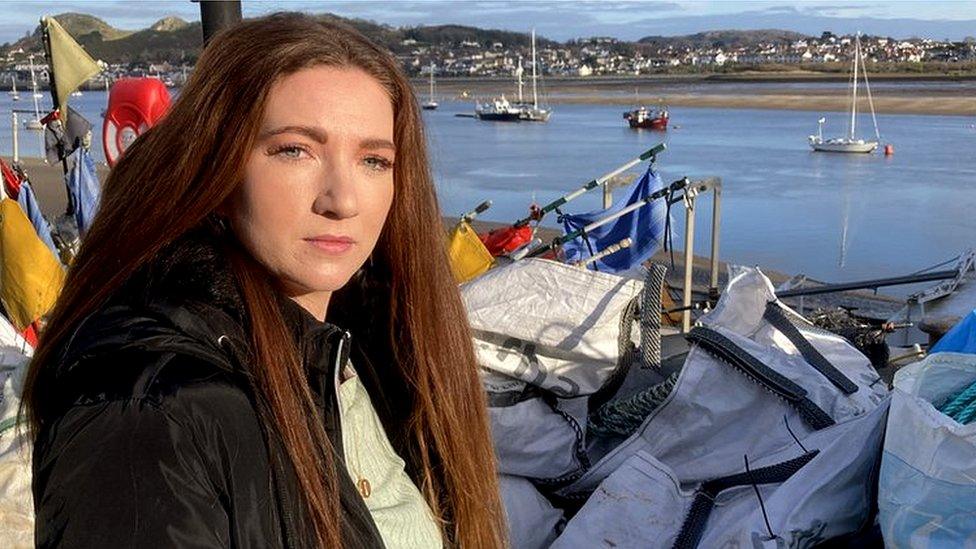
- Published31 May 2021
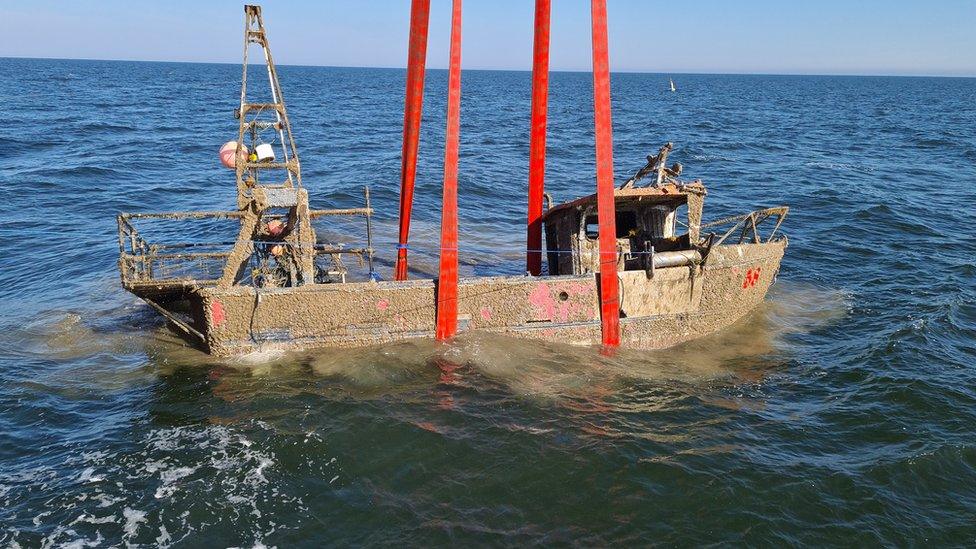
- Published6 May 2021
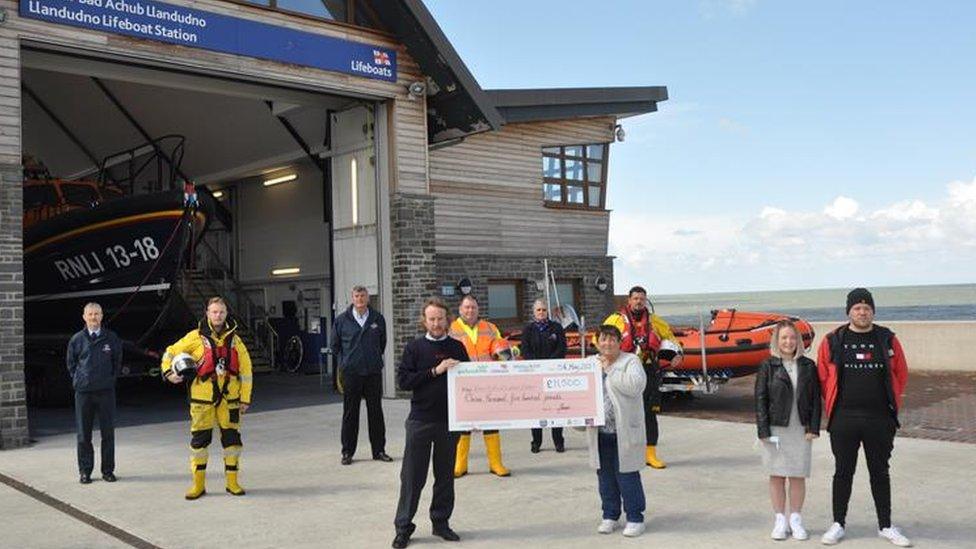
- Published7 March 2021
